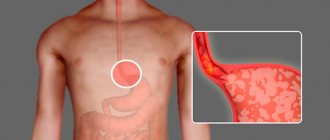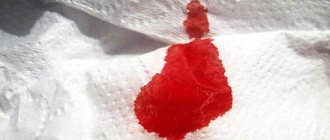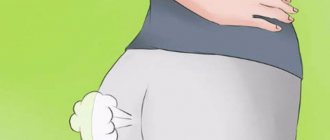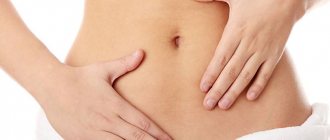The process of digestion in the human body takes place in several stages: breakdown in the stomach, separation into proteins, fats, carbohydrates in the small intestine, absorption of elements, removal of unnecessary substances. Defecation releases undigested food debris, dead membrane cells, and microbes that initiate fermentation and gas formation. The combined mass is called feces. Normally, the consistency is similar to toothpaste, smooth brown in color, 15-18 cm long.
Hard feces indicate disturbances in the process of digestion and metabolism in the body, causing pain and difficulty during bowel movements.
Causes
The causes of hard stool in adults often arise from one another and are complex. If constipation occurs, a violation of stool consistency manifests itself in isolated cases, not systemically, the cause, in most cases, is a violation of the diet, a stressful situation.
Hard feces have specific causes associated with pathologies.
Psychological
Among the psychological reasons it is worth noting:
- Depression. Problems arise due to decreased nervous regulation, slowing down all functions of the digestive system.
- Regularly holding feces in public places. This atrophies the voiding reflex.
- Strict dieting, anorexia, which stops metabolism.
- Low motor activity, reducing intestinal motility. We are talking about sedentary work, diseases of the musculoskeletal system, etc.
Psychological factors only temporarily change the functions of digestion . After restoring diet and physical activity, hardened feces return to normal within 7-10 days. Taking drugs that temporarily disrupt physiological processes has a similar effect.
Effect of drugs
The following can negatively affect feces:
- Daily intake of laxatives – powders, tablets.
- Drugs: antispasmodics, antiulcers, antifungals, etc.
- Lead for the prevention of inflammation, in case of improper use.
Lead preparations are used only externally, to treat the skin and mucous membranes. Sold as a patch and water. The water that gets inside is highly toxic, has a poisonous and astringent effect on the intestinal mucous membranes, so constipation begins, sometimes with blood.
Diseases
Some diseases can also affect the condition of stool.
Namely:
- From the nervous system - encephalomyelitis, multiple sclerosis, Parkinson's disease, cerebral palsy.
- From the gastrointestinal tract - gastritis, irritable bowel syndrome, volvulus, coprostasis, tumors, condition after operations.
- Congenital pathologies - Hirschsprung syndrome, Crohn's disease.
- From the endocrine system - obesity, deficiency or excess of potassium, diabetes mellitus, hormonal imbalances, diabetic polyneuropathy.
The most common cause is a violation of the diet. Fast food, fried, fatty foods, excess salt, sugar. All this provokes the fact that feces do not come out. Irregular meal times are also a problem.
If the stool is dry, there is most likely a problem with dehydration; you need to increase foods containing fiber (nuts, cereals) and water. Vegetables and fruits are rich in fiber: pears, apples, plums, cabbage, beets, bran. To replenish fluid, you need to drink more water and eat cucumbers.
Fiber entering the intestines along with water swells, puts pressure on the walls, the masses become smoother, and the liquid helps soften them.
If the feces are like stones and formed into balls, it means that the intestinal vessels are not working properly and the blood circulation in them is impaired.
Contractions of the walls occur frequently and strongly, the mass moving at this time is divided across and comes out like peas. In rare cases, such feces are due to the physiological characteristics of the structure of the large intestine.
When feces remain in the intestines for several days, the mucous tissue becomes irritated. Because of this, constipative diarrhea occurs, when the first portion of feces comes out as a hard plug, followed by the release of mucus and a mass poorly digested by the irritated bowel. Normalization of digestion will restore stability of bowel movements .
According to statistics, in more than 50% of cases, problems are associated with insufficient water consumption. If at the same time a person eats a lot of fiber, constipation and gas formation are provoked.
What types of suppositories are there for constipation?
Stimulating suppositories based on glycerol or bisacodyl.
The effect develops against the background of the reflex effect of the drug directly on the intestinal mucosa. By irritating receptors, the active components of such suppositories stimulate motility, accelerating the process of bowel movement. Hard feces are also softened and the intestinal walls are lubricated, which further facilitates defecation.
Glycerol-based suppositories
— “Glycelax” 1.5 g and 0.75 g;
- “Glycerin” 2.11 and 1.24 g, preferably produced by the company “Nizhpharm.”
For an adult, laxative suppositories with a higher dosage of glycerol are used. Smaller doses are intended for children, so when purchasing the drug at the pharmacy you need to check this indicator.
Glycerol is absorbed in the intestines. The substance is then processed in the liver and excreted in the urine. The systemic effect is insignificant; an allergic reaction may develop. Use by pregnant and lactating women is allowed, but with caution and preferably as prescribed by a doctor.
"Bisacodyl"
Bisacodyl in a dose of 10 mg is a fast-acting suppository for constipation. The effect usually develops within 15 minutes, but no later than within an hour after administration. They have a pronounced stimulating effect. May cause spasms and unpleasant seething.
The components of the drug "Bisacodyl" are not absorbed in the intestine. Possible use in pregnant and lactating women, but after consultation with a supervising specialist.
When choosing a drug, people focus on price, quality, manufacturer and a number of other indicators. Many people prefer domestic production, without thinking about the fact that the pharmaceutical substance from which the medicine is prepared is often of foreign origin.
The effectiveness of the drug, the severity of the side effects greatly depend on the substance, and even the instructions for the same drug may differ. For example, the three main manufacturers of Bisacodyl laxative suppositories are:
- “Nizhpharm” is a pharmaceutical substance from Italy, approved for use in children over 8 years of age
- “Altpharm” - suitable for children from 2 years old, pharmaceutical substance China or Italy.
- GlaxoSmithKline Pharmaceuticals (Poland) - contraindicated for children under 10 years of age, substance Italy.
Oil candles.
Their action is determined solely by the physical properties of the components. Having melted under the influence of body temperature, the oil lubricates the intestinal walls and hardened feces. Feces become softer and more flexible, making defecation easier. Essentially, this is a mini version of an oil enema without the need to use a syringe.
Intestinal stimulation is weak and very gentle. Oil suppositories can be used in cases where, for some reason, a pronounced stimulating effect is undesirable. For these purposes, the preparation “Sea Buckthorn Oil” in the form of 0.5 g suppositories is suitable.
The main effect of sea buckthorn suppositories is healing. The laxative effect occurs indirectly, and it is not very intense. This option is not suitable for chronic constipation. An additional advantage of using sea buckthorn oil is the healing of microdamages to the intestinal mucosa caused by fecal stones.
"Microlax".
Not exactly suppositories, although this is also a drug for constipation for rectal administration. It is a micro-enema - a small tube with a tip. Volume is only 5 ml. The solution inside the tube is a combination of sodium salts, which provides rapid liquefaction, grinding and comfortable removal of hardened feces. The effect after administration occurs within 5 to 15 minutes.
Of the listed remedies for constipation, Microlax stands out not only for its interesting dosage form, but also for its impressive safety profile. It can be safely used even in children from birth, pregnant and lactating women.
Another advantage of stimulating suppositories is the possibility of using microenemas for spastic constipation. In most cases, situational constipation occurs against the background of decreased intestinal tone and sluggish peristalsis. Here a stimulating effect is necessary. If constipation is caused by a spasm of the intestinal muscles, the stimulating effect of suppositories can worsen the situation.
The Microlax saline solution works exclusively in the intestinal lumen, is not absorbed into the bloodstream and has no general effect on the body. The product is easy to use and highly effective.
Symptoms
There are two main manifestations of constipation - acute and chronic. The second form lasts from 2.5 months, intestinal function is disrupted, accompanied by pain and hard feces.
In addition, a round belly appears that cannot be pulled in. The acute form can be eliminated by proper nutrition, water, and stopping taking medications.
The main symptoms are:
- poor appetite;
- weakness;
- trembling in the limbs;
- nausea;
- fast fatiguability;
- poor skin condition, with rashes;
- accumulation of difficult to exhaust gases;
- high blood pressure;
- migraine.
All signs appear due to poisoning with toxic substances that cannot leave the body with feces. In the chronic form, the desire to perform an act of defecation comes rarely and does not last long. If you can’t visit the toilet at this time, the poisons will linger inside for another day.
False urges may be accompanied by the release of gases; the person gets relief for a while, as some of the stagnant air comes out, and the pressure in the intestines decreases. But new gases immediately form, and abdominal discomfort returns.
Gases pass through the stool, compressing it, causing pain. The symptom is clearly manifested in pea-sized feces .
If there are bloody spots, there can be two reasons - either anal and intestinal fissures, or internal bleeding. In the first case, the blood disappears after using medications - special suppositories, ointments. Bleeding in the gastrointestinal tract is accompanied by a dark color of the secreted plasma. If there is vomiting, acute abdominal pain, or increased body temperature, you need to call an ambulance
Very hard stool does not pass
Normally, a person's intestines form tight and dense feces. At the exit into the rectum, it already has an even denser state. Thick poop that is relatively dense is normal for humans. If it’s a little softer, then this is also normal, since each person’s stool will have its own shape (the stool may be soft or slightly hardened, but not stone-like).
If the stool is hard and does not come out of the rectum, if it is stuck in the small or large intestine, then this is constipation. Constipation is characterized by the fact that the first portion is hard, followed by soft but thick feces. If the formed fecal lump does not completely come out of the rectum, causes discomfort and pain, and after the act of defecation feels incomplete, then this also indicates pathology.
Another sign of constipation is stool that looks like sheep poop, or stool that looks like rocks. If stool is stuck, and then a fecal plug comes out of the intestine during a bowel movement with straining, and then liquid stool comes out, then this is not diarrhea; this phenomenon is also observed with constipation.
Very often, men and women suffer from a very sensitive and delicate problem - they are unable to go to the toilet normally
It is important to break up hardened stool in the intestines before a large lump forms in the rectum, causing an intestinal obstruction that can only be corrected by surgery.
Treatment and prevention
Preventive measures will help reduce the risk of hard feces if the problem is not caused by pathological diseases. This requires walks in the fresh air for 40-50 minutes every evening, separate meals, exclusion of fatty, fried foods, marinades and preserves.
The consumption of pure still water should be increased to 2-2.5 liters per day, mainly in the first half of the day (this will prevent swelling). At the first sign of constipation, real action will help eliminate the cause within 1-2 weeks.
When nutrition does not help establish hard stools, medical help is required. They do not recommend self-medication or abusing laxatives without prescription.
Causes and treatment of sheep feces in adults and children
Sheep feces - a disease or normal?
In a normal state, the excrement of a healthy person is oblong in shape, moderately hard, not dry, and therefore passes freely at the time of defecation.
However, there are other types of feces.
If stool dehydration does not change its shape to the desired one, and continues to come out in lumps, then you should contact a specialist to identify the cause.
Pea-shaped stool is very tight and hard when leaving the intestines and can lead to cracks in the anus. In this regard, this problem should be eliminated before it causes harm to health.
Sheep feces appear due to spastic tightness of the intestinal walls. As feces passes through the digestive tract, the walls begin to contract sharply, tearing some lumps from others.
Such dense feces can be caused by a number of factors that may be associated with pathologies of the nervous system or diseases of the gastrointestinal tract. They can also be a physiological property of the body.
The reasons may be:
- poor nutrition;
- colitis of various origins;
- sedentary lifestyle;
- hormonal disorders;
- irritable bowel syndrome;
- treatment with certain medications;
- insufficient use of plant foods;
- ulcers of the stomach, intestines;
- intestinal dysbiosis;
- pregnancy;
- dehydration of the body;
- bad habits;
- stressful conditions.
The causes of sheep feces in children are slightly different. The main ones are dysbiosis, stress, fear, and the use of medications with the presence of active digestive enzymes.
Treatment by a gastroenterologist
When sheep feces are observed constantly, you should find out the reason for this manifestation by seeking help from a gastroenterologist.
The doctor will perform some intestinal examinations to establish or exclude pathologies (colitis, diverticulosis, etc.) that have become the causes of atonic constipation.
When these diseases are identified, complex therapy is used, aimed at eliminating constipation itself, as well as the pathology that provoked it.
To do this, you will need to change your diet, eliminating foods that irritate the intestinal walls. Be sure to drink at least 2 liters of water per day (soups and drinks do not count).
To eliminate dense stool, you will need the following medications:
- Duspatalin – increases peristalsis.
- Lactusan is a laxative.
- Linex, Bifiform - restores intestinal microflora.
When feces are formed systematically, then the menu should be changed. Before going to bed, it is good to eat fruits, dried fruits (prunes, raisins) are effective remedies against constipation.
Figs help to activate the intestines (before lunch, 2 berries will be enough).
Sheep feces will be eliminated if you reduce the number of flour products and take plant foods instead.
Fresh kefir also has a laxative effect, but stale kefir has the opposite effect.
Traditional methods
Dry feces in the form of peas can be treated using traditional methods. Prunes and gooseberries are considered excellent laxatives.
Rowan tincture will help get rid of constipation. Take rowan berries and sugar in the same 1:1 ratio and cover tightly with a lid. A month later, the rowan is taken out and 50 grams are poured into 1 liter of syrup. alcohol Use once a day, diluted a little in water.
If sheep feces are not treated, then cracks in the anus and hemorrhoids may form. Constipation can lead to malignant neoplasms of the colon.
Physical exercise helps to prevent spasmodic constipation. Exercise, a healthy lifestyle and abdominal massage have a beneficial effect on peristalsis.
Therapy for hormonal and neurological changes
Factors causing sheep feces can be endocrine and neurological disorders, such as:
- changes in protein metabolism;
- lack of thyroid hormones;
- Parkinson's pathology;
- diabetes;
- porphyrin disease;
- increased presence of calcium in the blood and decreased in the bones;
- multiple sclerosis.
Dry feces in the form of pellets can occur due to psychogenic factors (anorexia, depression, etc.). The main symptoms of constipation are pain during bowel movements and inconsistent visits to the toilet.
Such people should take preventative measures for constipation - drink more fluids, coarse fiber foods, and lead an active lifestyle.
Sheep feces are eliminated using:
The abdominal muscles in the female half of the population are usually weaker formed than in men, and have an atonic character (feces do not come out in peas, but in a large structure) in nature, while in men they are spastic. Constipation occurs in women who are pregnant, sedentary or have significant body weight.
Treatment of sheep feces in children
If sheep feces forms in a newborn baby, immediate medical attention will be required. You need to contact a gastroenterologist or proctologist. Fecal dehydration in children may indicate a disease: meningitis, diabetes mellitus, etc.
In babies, sheep feces appear due to:
- sigmoid colon distension;
- disturbances in the functioning of the sphincter;
- excessive intestinal ring.
In older children, hard stool can form due to dysbiosis that appears when the intestines are infected with Klebsiella, staphylococcus, or after taking antibacterial drugs.
Nervous shocks and high body temperature during a cold can affect the functioning of the gastrointestinal tract. In this situation, you will need to drink plenty of fluids, which will help establish normal stool consistency.
For preventive measures of spastic constipation and therapeutic actions, the child should normalize the diet. You need to include berries, fruits, and fresh vegetables in your diet.
You should not treat sheep feces in a child on your own; a qualified specialist will prescribe the correct treatment aimed at restoring the immune system and eliminating the main cause of constipation.
Drug treatment
All drug treatment comes down to:
- Replacing medications that cause constipation (if a person uses something to treat other ailments).
- Prescription of mild laxatives – Mucofalk, Methylcellulose, etc.
- Use of medications with an osmotic effect: Sorbitol, Duphalac (not prescribed for gastrointestinal diseases).
- Purpose of glycerin and vaseline lubricants.
- Physiotherapy.
- Taking vitamins B1, ascorbic acid, retinol.
Physiotherapy is prescribed in cases where drug treatment does not help or in combination with therapy for the underlying disease. Paraffin and mud applications are used on the lower abdomen, electrophoresis, ultrasound using a special technique, ascending shower, ultraviolet radiation, faradization.
Procedures are performed only as prescribed by a doctor, if there is no risk for the course of chronic diseases.
It is acceptable to use traditional methods when they are based on the intake of natural products. At the same time, none of the recommended remedies should be used in excess if there are tumors, septa, adhesions, polyps and other formations in the intestines.
Folk remedies
To cope with hard feces, you can turn to traditional medicine.
Herbalists advise paying attention to the following recipes:
- Brew a teaspoon of flax seeds in 100 ml of boiling water, leave for 20 minutes. Cool and drink in the morning on an empty stomach.
- Take a tablespoon of bran every morning.
- Squeeze the juice from the beets, let it brew for an hour and take a glass throughout the day. You can use carrots instead of this vegetable.
- The brine from pickled cucumbers or cabbage perfectly removes toxins and improves bowel movements, so it is recommended to drink 100 ml 2 times a day between meals.
- You need to take 1 tablespoon of corn oil daily before breakfast.
You cannot do an enema with soapy water. It will empty the colon quickly, but will cause irritation if there is internal damage. The method is considered radical and ineffective for chronic constipation.
Possible consequences
The consequences of trouble include:
- Cracks that become inflamed when infected or bacteria enter.
- Pain syndrome, leading to loss of strength and depression.
- Toxin poisoning can provoke constant migraines with increased blood pressure.
- Haemorrhoids.
- Colitis.
- Reflux enteritis (inflammation in the upper gastrointestinal tract).
- Severe distension of the intestine.
The greatest danger is posed by harmful substances that are excreted by feces. If it lingers in the body for more than a day, toxic poisoning is inevitable - microbes penetrate the blood and spread throughout all organs. This cycle is repeated several times, depleting the body .
Stagnant masses in the intestine provoke the creation of carcinogenic microflora. It is in this environment that malignant cells multiply best, threatening tumors. Untimely treatment of constipation or ignoring the unusual consistency of stool can cause intestinal cancer.
It is especially important to pay attention to metabolic disorders during pregnancy and after childbirth. During this period, a woman’s immunity is weakened and is not always able to detect and defeat pathogenic cells.











